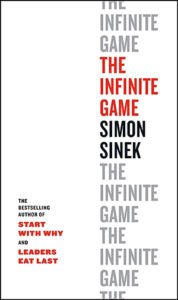|
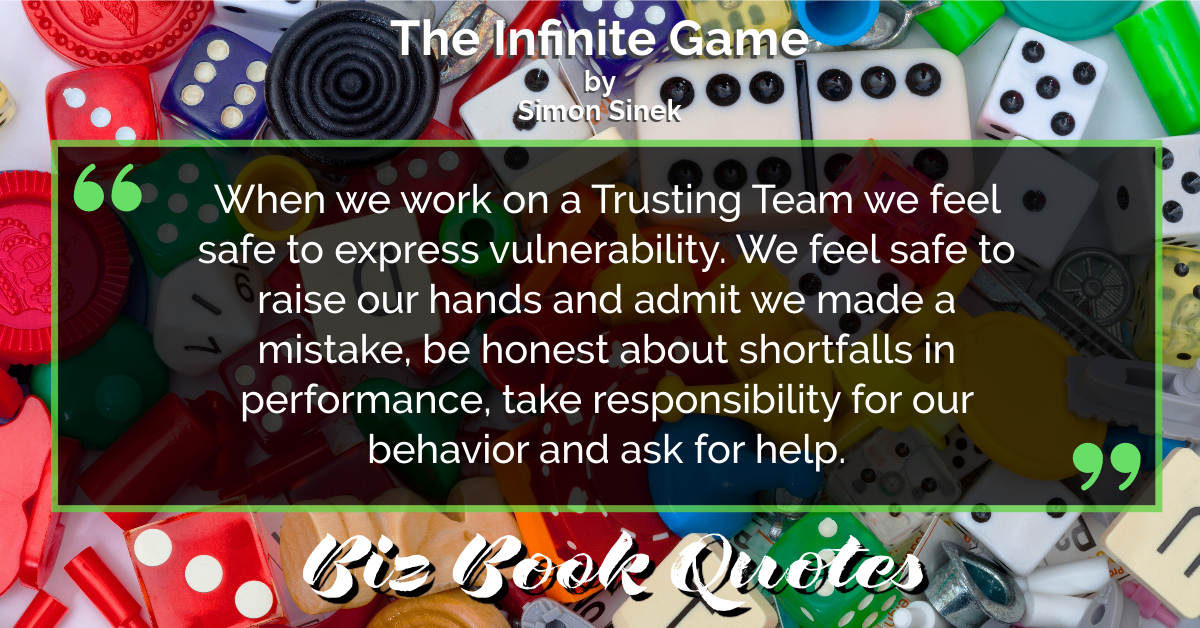
|
The Infinite Game:
When we work on a Trusting Team we feel safe to express vulnerability. We feel safe to raise our hands and admit we made a mistake, be honest about shortfalls in performance, take responsibility for our behavior and ask for help.
|
106 |
|
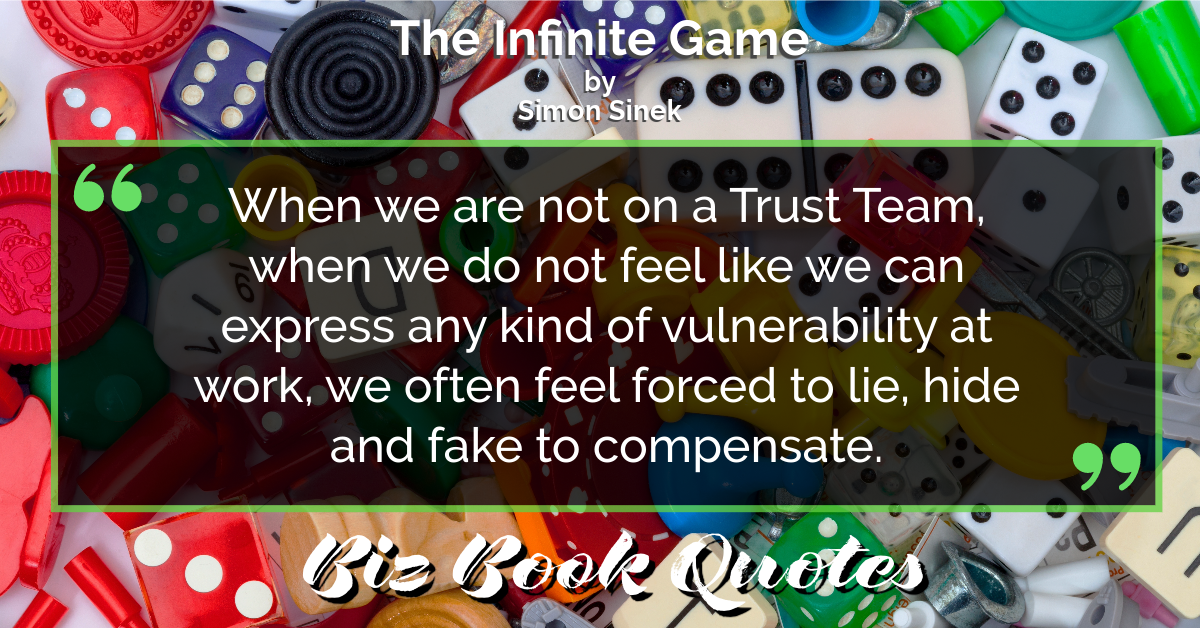
|
The Infinite Game:
When we are not on a Trust Team, when we do not feel like we can express any kind of vulnerability at work, we often feel forced to lie, hide and fake to compensate.
|
106 |
|

|
The Infinite Game:
Our ability to trust is not based on our industry. This is human being stuff. Sometimes all we need to do is translate the concepts to fit the cultures in which we work.
|
107 |
|

|
The Infinite Game:
There is no way we can turn off our feelings simply because we are at work.
|
108 |
|

|
The Infinite Game:
Feeling safe to express our feelings is not to be confused with a lack of emotional professionalism.
|
108 |
|
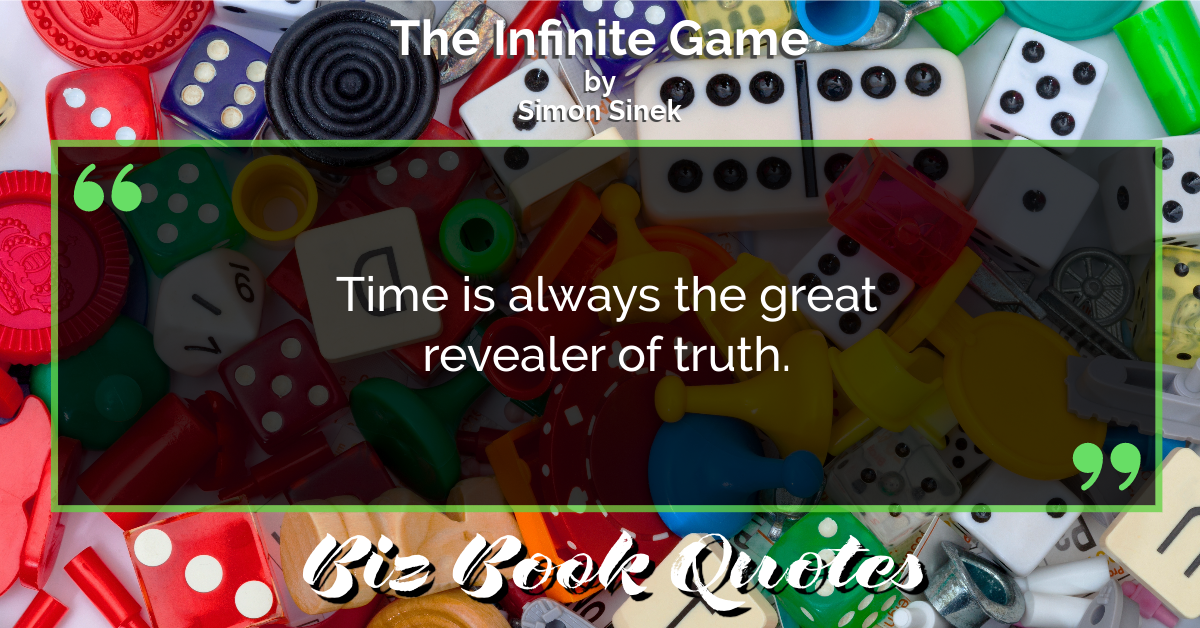
|
The Infinite Game:
Time is always the great revealer of truth.
|
112 |
|
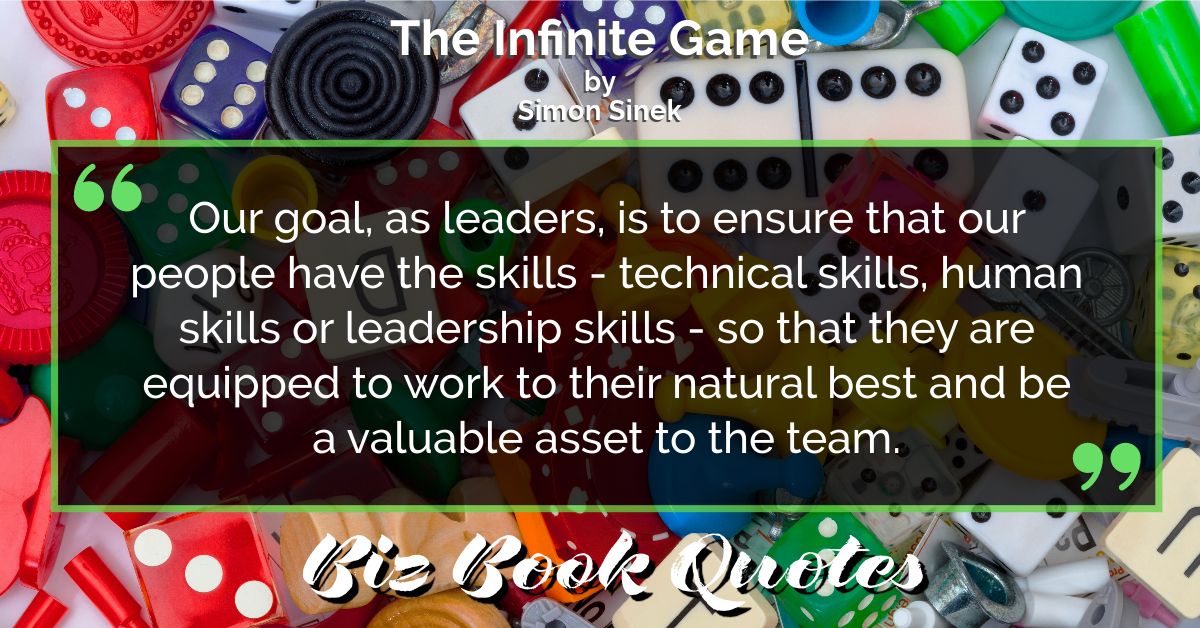
|
The Infinite Game:
Our goal, as leaders, is to ensure that our people have the skills – technical skills, human skills or leadership skills – so that they are equipped to work to their natural best and be a valuable asset to the team.
|
113 |
|
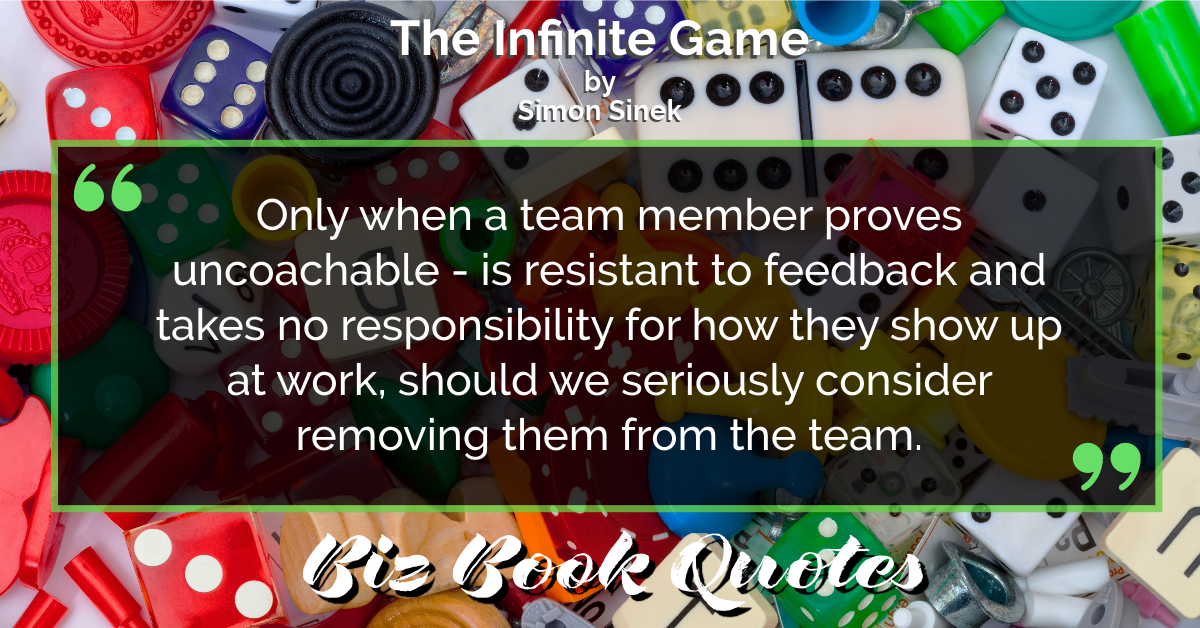
|
The Infinite Game:
Only when a team member proves uncoachable – is resistant to feedback and takes no responsibility for how they show up at work, should we seriously consider removing them from the team.
|
114 |
|
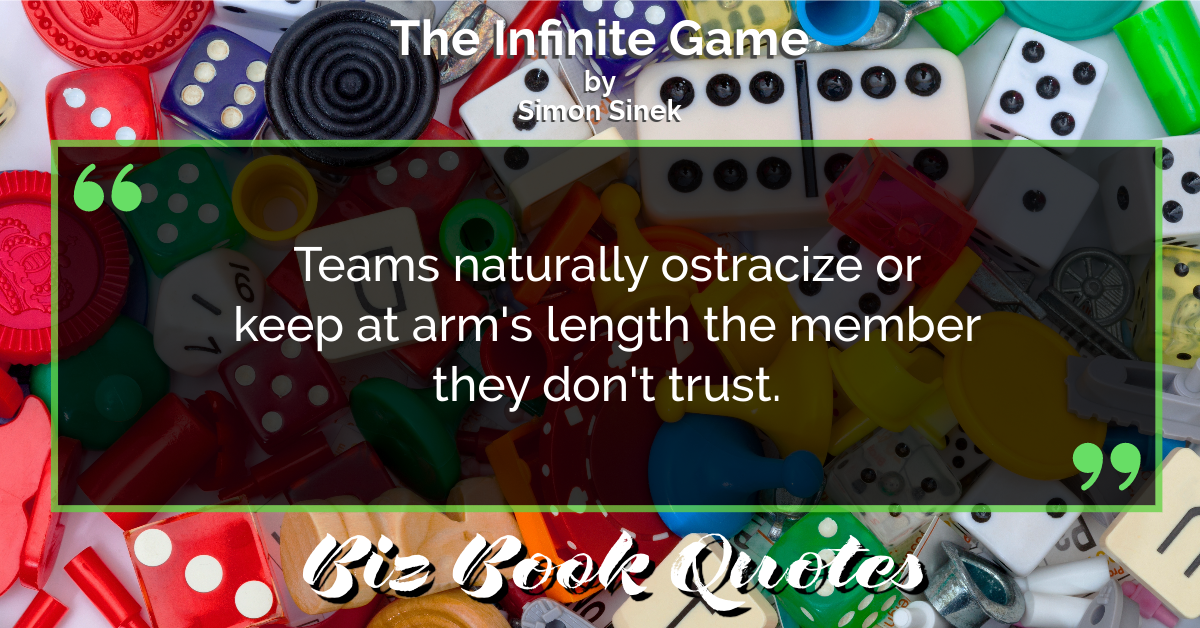
|
The Infinite Game:
Teams naturally ostracize or keep at arm’s length the member they don’t trust.
|
114 |
|
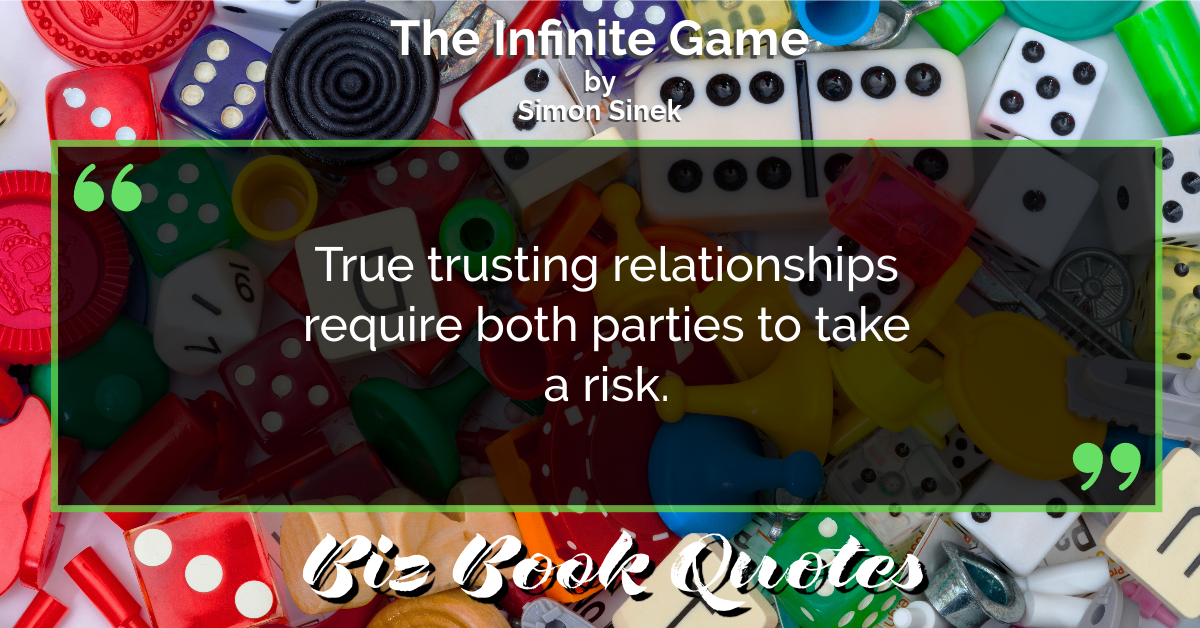
|
The Infinite Game:
True trusting relationships require both parties to take a risk.
|
117 |
